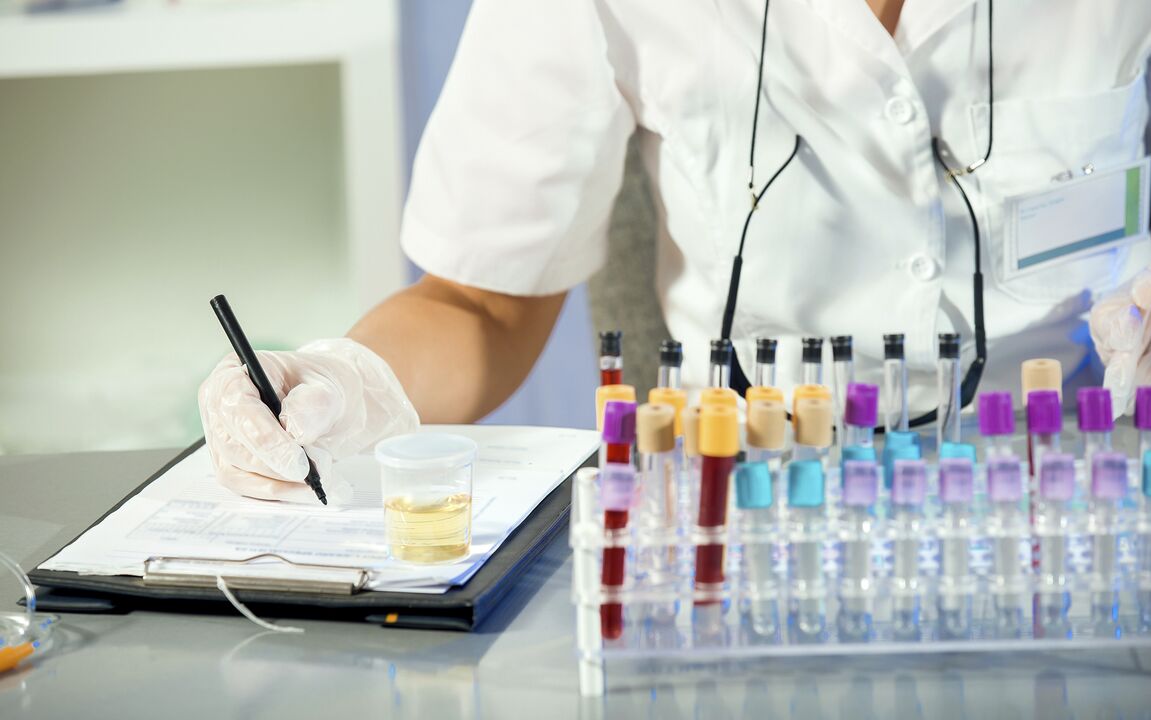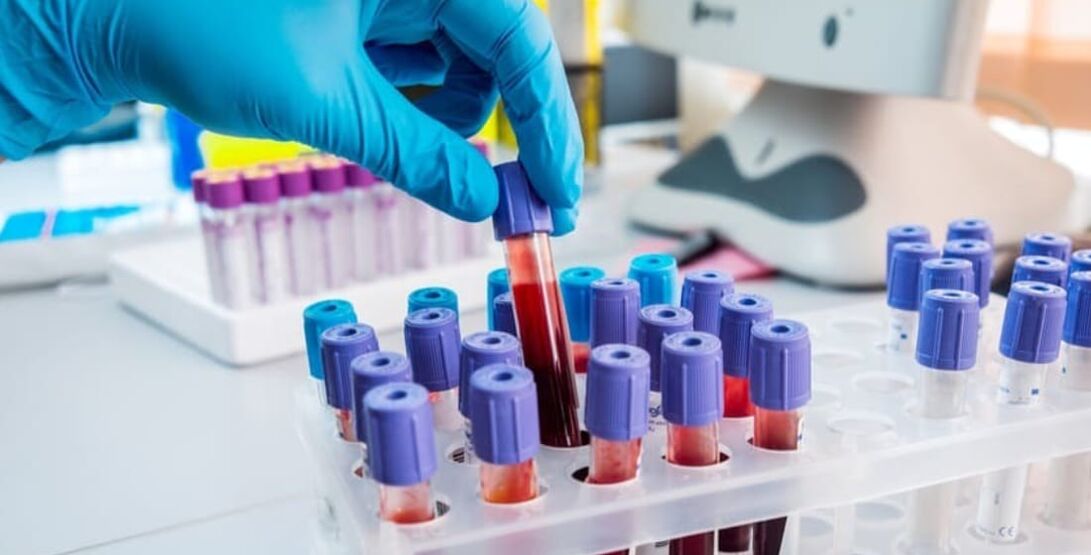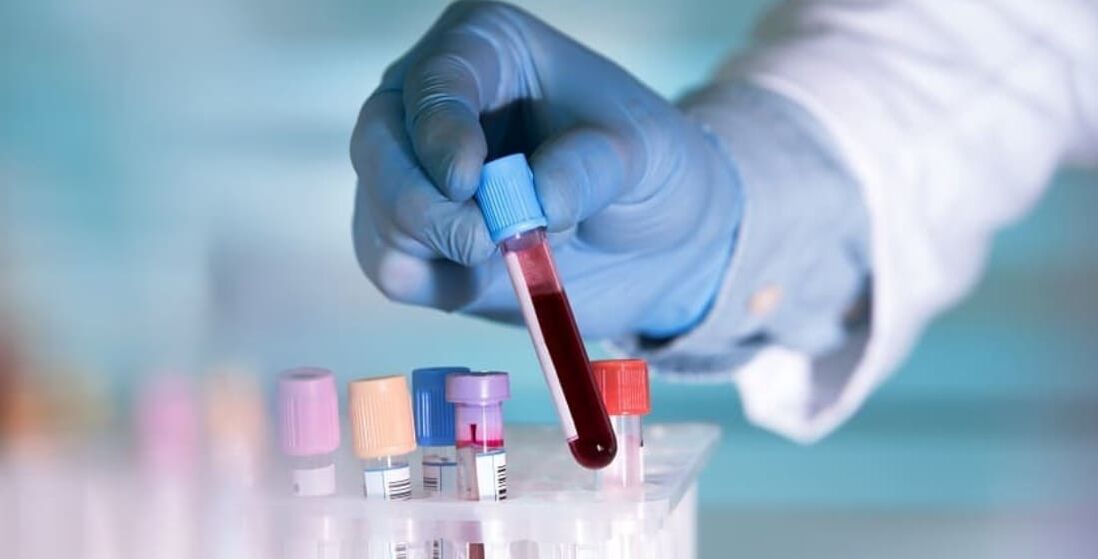
The main step in the rapid treatment of any disease is diagnosis. Timely conducted laboratory tests allow us to provide the most accurate information about the course of the disease. To achieve this, a preparatory step is required. Most of our compatriots have a natural interest: how does ethanol affect the accuracy of the analysis?
Does alcohol affect blood tests?
Alcohol can changeblood composition:
- reduce red blood cell counts and hemoglobin indicators,
- reduce urea content,
- lower lactate levels,
- lowering glucose levels,
- increase the percentage of triaclglycerol.
Alcohol can make the blood more viscous, increasing the rate of thrombosis. An increase in the number of attached cells and red blood cells can be interpreted as megaloblastic anemia.
The biggest deviation if you consume alcohol before taking the test is indicated by blood biochemistry. Decreased uric acid is the result of a violation of circulatory mechanisms. Increased concentration of triacilglycerol - indicates the presence of ischemia or hepatitis.
So that the test after alcohol does not confuse the doctor, when receiving a referral, it is necessary to inform the specialist about this condition.
In addition to distorting test results, alcohol can distort the operation of devices in the laboratory. The effect of reagents on ethanol disrupts blood sugar levels, as a result, it is impossible to begin treatment of diabetes mellitus in a timely manner.
How alcohol affects testing
Ethanol is not a major condition that needs to be eliminated before going to the lab. Not only smoking or eating before the test, drinking alcohol can reduce the accuracy of the instrument.
Analytical distortion under the influence of ethanol can make the diagnosis ineffective. The more alcohol is consumed, the less objective the result.
General analysis

Exposure to alcohol can skew resultsthus:
- destroy red blood cells,
- increase cholesterol levels sometimes by 80%,
- reduces hemoglobin levels, as the concentration of red blood cells also decreases.
If you consume alcohol immediately before this analysis, then the greatest probability that the number of red blood cells (red blood cells that transport oxygen to all organs or tissues and transport back carbon dioxide) will decrease.
Alcohol dissolves red blood cell membranes, which prevents their irregular natural movement and reduced rejection. Red blood cells begin to stick together. Their concentration in plasma decreases, which requires a decrease in hemoglobin parameters. Red blood cell clots lead to the appearance of blood clots and a decrease in blood microcirculation in the vessels.
The blood becomes thicker after the alcohol gets inside. Its ability to penetrate through the capillary lumen is reduced due to the clots that appear. This condition is dangerous to the health and life of people and prevents a complete study of blood composition.
In the liver, under the influence of alcohol, lipid production decreases. This reduces the characteristics of the plasma. Such indicators play a key role in the period when the patient is ready to operate. Accurate analysis is important to ensure the patient’s health is monitored when he or she has a serious infectious disease or during the healing of a large wound surface.
Blood tests takenin less than 12 hoursafter consuming alcohol, it may indicate only general intoxication accurately. Decreased hemoglobin only indicates megaloblastic anemia. But doctors may be reluctant to make a diagnosis, referring to the patient’s recent alcohol intake.
Biochemical indicators
Alcohol has the strongest effect on biochemical blood tests. This analysis is the most complete. With its help, you can find out which substances a person desperately needs, and which there are many and an urgent need to lower its concentration.
Results of biochemical research under the influence of alcohol changesthus:
- the amount of urea in the blood decreases,
- data on the absorption of oxygen by body cells is violated,
- quantitative indicators of glucose suffering.
The latter factor can pose a threat to the patient’s life, due to the late diagnosis of diabetes mellitus.
The increase in urea background is also due to alcohol intake. Distortion indicators of its contents can hide severe circulatory disease, leading to hemorrhagic shock or acute heart failure. Because urea is involved in nitrogen excretion, an increase in its concentration is a sign of gout and polyarthritis. The accuracy of the diagnosis can be satisfactory only with alcohol abstinence before taking the test.

Drinking alcohol before the procedure can cause an increase in the content of triacilglycerol in the bloodstream. This neutral fatty substance, found in the bloodstream, indicates a pathological process,like:
- atherosclerosis,
- ischemia,
- cerebral artery thrombosis,
- viral hepatitis.
Most physicians, on principled considerations, exclude medical products containing alcohol from intake before taking blood from patients. But it is believed that alcohol helps to detect the presence of infectious diseases. But even the smallest dose of ethanol interferes with test results and makes them unsuitable for doctors.
According to the stories of nurses and doctors, most people did not admit to consuming alcohol before the test. Another side factor that manifests itself when people who have drunk alcohol the day before are tested isis:
- fainted,
- severe headache
- nausea.
The amount of blood taken from the body from the veins is negligible. Losing it is not a problem for someone. But if a patient comes for a test after consuming alcohol, metabolism is usually affected and blood circulation in the brain is reduced.
Venous intake can cause brain oxygen starvation. This can cause severe dizziness or fainting. After that, the patient may experience headaches for a long time.
Alcohol poisoning can interfere with the digestive tract. Patients may vomit in the doctor’s office or in the laboratory due to the smell of alcohol or chlorine used for disinfection.
Glucose test
Studies on blood glucose levels are needed for people with endocrine disorders. Blood is taken from the fingers. If the patient drinks liquids containing alcohol before taking blood, his blood becomes thicker, the pressure decreases. This makes it difficult to get blood and worsens the risk of thrombosis.
Exposure to alcohol is a negative factor for liver cells. It also has a negative effect on laboratory equipment and reagents. This makes the results inaccurate. Sugar levels can be raised or lowered in relation to the actual situation.
One gram of alcohol can change the number of kcal by 7 and above, which is explained by the rapid penetration of ethanol into tissues and body fluids. The sugar indicator in this case increases.
Alcohol is the cause of low sugar values.About 2. 5 hoursstable data on blood glucose are provided by carbohydrates from food. For the rest of the period, glucose is produced by the liver, which attracts the body’s energy source. Alcohol disrupts normal metabolic processes and causes hypoglycemia.
Blood sugar levels return to normalafter 1 or 2 days. . . If a patient is at risk for diabetes mellitus, then it is important for him or her to give a regular picture to the doctor. In other cases, doctors will associate high sugar levels with drinking alcohol. The period in which health can be improved will be missed.
Can I drink alcohol before the test?
No matter what. Alcohol alters test results. The most important thing is to completely refrain from drinking alcohol -containing liquids before major surgeries.
Sometimes a small amount of alcohol can be taken before the test. The doctor will discuss this condition with the patient at an appointment in an individual conversation.
But in any case, the recipient must stop consuming alcoholic beverages forty -eight hours prior to analysis. During this period, the human body gets a chance to recover.
When tested for HIV, hepatitis B or C, as well as syphilis, the period of time when the patient must be fully conscious increases to 72 hours. Otherwise, the results of the analysis will be distorted.
If the lab assistant or doctor receives information that the patient drank before the test, blood donation is delayed. If information appears later, then the analysis is repeated when acetaldehyde is no longer present in the bloodstream.
The only possibility when alcohol will not affect the results is considered to be the analysis of alcohol intoxication, which is conducted among motorists and some categories of employees. This test is conducted without preparation or warning to obtain an objective picture. In any other case, you can just drink water before taking the test.
























